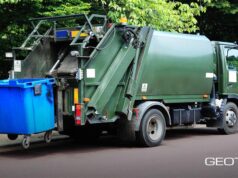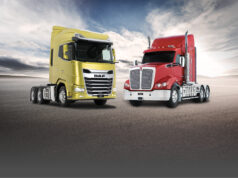FBT
What is FBT?
A fringe benefit is a ‘payment’ to an employee, but in a different form to salary or wages. FBT is a tax paid by employers which is separate to income tax and is calculated on the taxable value of the fringe benefit. The employer must self-assess their FBT liability for the FBT year (1 April to 31 March) and lodge an FBT return.
Employers can generally claim an income tax deduction for the cost of providing fringe benefits and the associated FBT they pay. Employers can also generally claim GST credits for items provided as fringe benefits.
Types of FBT
There are many types of fringe benefits and associated taxes. FBTs most relevant to fleets are car fringe benefits and car parking fringe benefits.
What is a car fringe benefit?
In general terms, a car fringe benefit is where you make a car, which is owned or leased by the business, available for the private use of an employee. Usually, this includes travel to and from work.

Calculating FBT for car fringe benefits
There are two methods for calculating FBT:
- Statutory formula method – Calculates the taxable value of car fringe benefits by multiplying the statutory rate by the car’s base value.
- Operating cost method – Provides the taxable value of the car fringe benefit by multiplying the total costs of operating the car during the FBT year by the percentage of private use. The value varies with the extent of actual private use so the lower the private use, the lower the taxable value.
Penalties
There may be penalties imposed for lodging an incorrect FBT return and not lodging on time. Penalties can be substantial for false or misleading statements. General interest charges are also payable on all outstanding amounts of FBT.
Fuel Tax Credits
What is fuel tax?
Fuel tax is a federal duty included in the price of fuel. It will either be a type of excise duty (a commodity-based tax) or a type of customs duty. It’s an excise duty if the fuel is manufactured, produced or stored in Australia. Whereas if you import fuel into Australia, instead of paying excise duty, you generally pay the equivalent amount in customs duty. The tax is indexed twice a year on 1 February and 1 August in line with CPI.
What are fuel tax credits?
Fuel tax credits provide businesses with a credit for the price of the fuel tax included in the price of fuel used in:
- machinery;
- plant;
- equipment;
- heavy vehicles; and
- light vehicles travelling off public roads or on private roads.
Claiming Fuel Tax Credits
Fuel tax credits are claimed on your BAS. The amount you can claim depends on:
- when you acquired the fuel;
- what fuel you use; and
- the activity you use it for.
If you claim less than $10,000 you can use a simplified approach. Either way, you’re going to need to keep accurate records to substantiate both how much fuel was purchased and how much fuel was used in your business, as well as ensuring accurate calculation of the claim itself.
Errors and consequences for over claiming
If you make an error in your calculations, you must repay over claimed fuel tax credits and you may have to pay a general interest charge on the amount of the over claim and a penalty.

More information on FBT and Fuel Tax Credits
Gerard McLennan from LBM Fleet Solutions plans to speak to a fascinating case study at the IPWEA Fleet Conference on FBT and fuel tax credits including:
- the rules and opportunities; and
- data collection and analysis.














